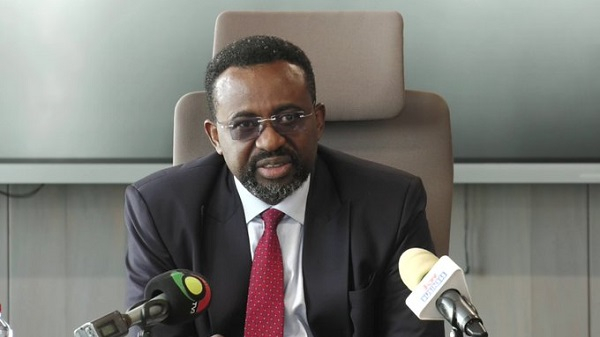 Dr. Johnson Asiama has been nominated as Bank of Ghana Governor
Dr. Johnson Asiama has been nominated as Bank of Ghana Governor
The sharp rise in Non-Performing Loans (NPLs) in banks across the country has been largely attributed to delays by the government in paying contractors, the Alliance for Development and Industrialization has revealed.
In a statement issued in Accra and signed by its Convener, Dr. Richard Nunekpeku, the group noted that “government contracts over the years have been the primary cause of high NPLs in banks, affecting their profitability.”
These delayed government payments resulted in the closure of nine domestic banks and over 400 financial institutions, including microfinance institutions and savings and loans companies.
The Ghana banking crisis, which occurred between August 2017 and January 2020, was a severe financial disruption. The Bank of Ghana (BoG) allowed several indigenous banks to be taken over by private companies.
“Over the years, governments have awarded contracts, but the persistent delays in payments—some extending as long as eight years—have severely damaged the financial health of banks. These delays disrupt their financial records and investments, dashing the anticipated profits of board members and leadership while interest continues to accumulate. Meanwhile, the government struggles to make payments, with little consideration given to the mounting interest,” the statement added.
“It is evident that most banks had financed government contracts in anticipation of timely payments. The Bank of Ghana also had a responsibility to support their liquidity and ensure their continued operation.
“Unfortunately, due to political victimization and constant blame-shifting, there was no proper empirical evaluation of the situation. For instance, assessing the actual cost of restoring the liquidity positions of these banks and addressing the lost profits of shareholders should have been prioritized. Just as the U.S., under President Obama, provided financial support to struggling banks under stricter supervision to ensure their recovery, Ghana could have adopted a similar approach,” the group said.
The Alliance further pointed out that the financial sector reforms under John Mahama/Asiama would not have led to the closure of banks and job losses while plunging the Central Bank into an unrecoverable debt crisis.
Instead, these banks could have been challenged to become more productive under better supervision, thereby preserving jobs and fostering economic growth. This approach could have strengthened the economy and prevented the need for a “haircut.”
“Sadly, the insensitivity of the NPP government led to an economic calamity in 2022.
“We should acknowledge John Mahama for taking the necessary steps to restore economic growth and improve the welfare of citizens.
“A pressing question for the NPP and the receiver remains: What is the true cost of this exercise in terms of asset wastage? When we consider the costs of job losses, idle assets, projected returns, and payouts, we realize that the economic impact has exceeded GH¢50 billion.
“We call on the opposition and other institutions advocating for the removal of Dr. Asiama as Governor of the Bank of Ghana to reconsider their stance. Ghana must move beyond political biases and focus on practical economic solutions while reducing reliance on textbook economic theories that have dominated the past eight years,” the statement concluded.
